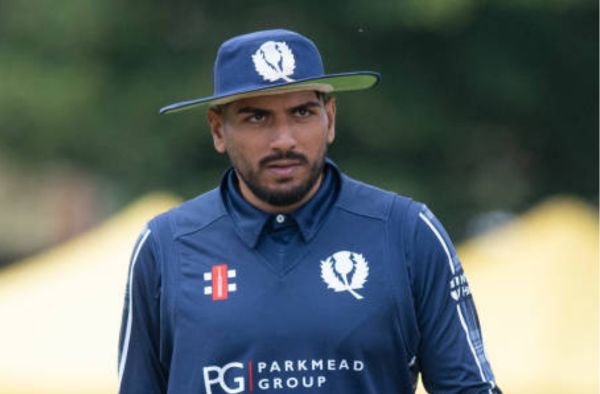In the world of sports, disagreements and disputes aren’t uncommon. But what truly matters is how those situations are handled. Recently, Cricket Scotland and former international player Hamza Tahir reached a positive conclusion to their differences — choosing peace and professionalism over prolonged tension.
Let’s break down what actually happened, why it’s important, and what it could mean for the future of Scottish cricket.

What Was the Dispute Between Cricket Scotland and Hamza Tahir?
To keep things simple, Hamza Tahir—a skilled left-arm spinner who has represented Scotland internationally—filed a claim against Cricket Scotland. This happened after a wider investigation into racism and discrimination within the sport was made public back in 2022.
That investigation, led by consultancy firm Plan4Sport, uncovered some troubling findings. It concluded that institutional racism did exist in the governing body. More than 400 people came forward with stories and experiences that spotlighted various forms of discrimination within the game.
In Hamza’s case, his experience led him to take legal action under employment law connected to equality and fairness. He believed he hadn’t been treated justly during his time with the team. However, Cricket Scotland and Hamza have now managed to come to an amicable solution—which, in everyday terms, means they settled things in a friendly and respectful way without further legal battles.
Why Is This Story Important?
This isn’t just about one player and a cricket board. It’s about the broader movement towards fairness, inclusion, and accountability in sports.
Here’s the thing—sports are meant to unite people, not divide them. They should provide equal chances for everyone, no matter where they come from or what their background is. So, when someone like Hamza steps forward to share his experience, it sends a signal:
- It’s time to take complaints seriously.
- No one should feel invisible or mistreated on the field or off it.
- Transparency and change must become a priority.
This settlement shows that Cricket Scotland is being more proactive about doing the right thing. That’s definitely a step in the right direction.
What Did the Settlement Include?
According to Cricket Scotland’s official statement, the terms of their agreement with Tahir will remain confidential. That means we don’t know all the details—like if any compensation was provided or what specific promises were made. But one thing is clear: both sides wanted to find a resolution without dragging things out in public.
Cricket Scotland also made a special note of thanking Hamza Tahir—not just for raising concerns but for the way he helped highlight the need for cultural and systematic changes in Scottish cricket.
How Did Cricket Scotland Respond?
Leadership at Cricket Scotland, including interim CEO Peter Gray, expressed their appreciation for how cooperative discussions were held with Hamza. Gray pointed out that these conversations weren’t easy—but they were necessary. He acknowledged the emotional toll it can take on players to come forward and make themselves vulnerable.
From what we can tell, the board is serious about reform. They’ve put in place new practices and are rebuilding how the organization functions. It’s about more than just ticking boxes—it’s a true culture shift.
Here’s what Cricket Scotland says they’re focusing on:
- Fairer selection processes for players
- Better communication between management and athletes
- Increased awareness around diversity and inclusion
What This Means for the Future of Cricket in Scotland
Let’s be honest: no organization is perfect. Mistakes happen. What sets leaders apart is their willingness to listen, learn, and grow. Cricket Scotland now has an opportunity—not just to rebuild its policies, but to rebuild trust with players and fans alike.
Does that mean everything is now fixed? Not completely. True change takes time and honest effort. But things are clearly moving in a better direction.
Think of it like rebuilding a cricket pitch after a storm. First, you inspect the damage. Then you fix what’s broken. Only after that can players step back onto the field with confidence, knowing the ground beneath their feet is firm.
If you’re a young cricketer dreaming of playing for Scotland someday, you want to feel supported. You want to know that your background or ethnicity won’t hold you back. Settlements like this—while quiet—show that positive groundwork is being laid.
Who Is Hamza Tahir?
If you’re not familiar with Hamza Tahir, he’s been a key player for the Scotland national cricket team. Known for his smart spin bowling and sharp mind on the field, Tahir has represented Scotland in several international matches, including T20 internationals and One-Day games.
His courage to speak up—not just play—is now just as notable as his performance in matches. That shows strong character and leadership off the field, too.
Wrapping Up: A Step Toward Positive Change
The amicable resolution between Hamza Tahir and Cricket Scotland is about more than just a closed chapter. It’s a symbol of growth, healing, and moving forward. Both parties should be applauded—Hamza for bravely standing up for fairness, and Cricket Scotland for responding thoughtfully.
As fans and followers of the game, it’s our job to continue supporting efforts that promote equity, respect, and progress across all levels of sport. Because in the end, cricket—just like any team sport—is about coming together as one.